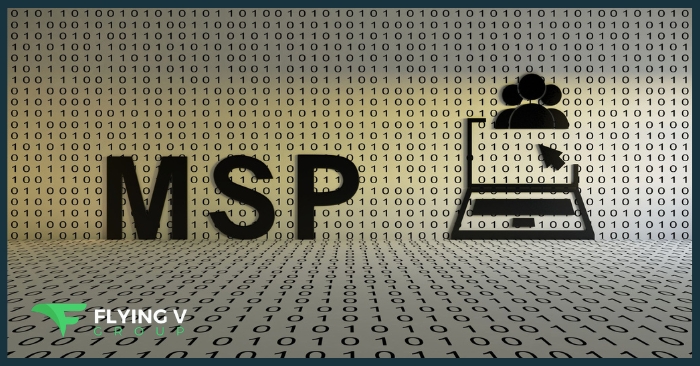The managed services provider (MSP) industry continues to expand rapidly as businesses of all sizes recognize the value of outsourcing their IT operations. However, growth comes with increasing competition and evolving client expectations that require strategic planning to navigate successfully.
Scaling an MSP business demands more than simply adding new clients to your roster. True, sustainable growth requires a comprehensive approach that addresses operational efficiency, service differentiation, financial management, and client retention.
This guide provides a detailed roadmap for MSP owners and executives looking to scale their businesses effectively in today’s competitive landscape.
- The Current MSP Market Dynamics
- The Importance of Strategic Specialization
- Developing a Scalable Service Delivery Model
- Financial Strategies for Sustainable Growth
- Building a Recurring Revenue Foundation
- Effective Sales and Marketing Approaches
- Delivering Exceptional Client Experiences
- Strategic Team Development and Hiring
- Leveraging Technology for Operational Scale
- Measuring and Optimizing Performance
- Bottom Line
The Current MSP Market Dynamics
The MSP industry has undergone significant transformation in recent years, shaped by key trends that are redefining demand and competition. Cybersecurity remains a top priority as businesses seek comprehensive protection against evolving threats. At the same time, rapid cloud adoption continues to drive demand for migration expertise and ongoing managed services. The shift toward remote and hybrid work models has further amplified the need for scalable, secure IT infrastructure to support distributed workforces.
However, MSPs must navigate several challenges to achieve sustainable growth. Intensifying competition has led to margin compression, making profitability harder to maintain. Talent shortages in critical IT specialties hinder scalability, while rising client expectations demand faster response times and more proactive support. Success requires a strategic approach focused on long-term resilience rather than short-term gains.
Marketing experts can help MSPs develop and execute targeted growth strategies that deliver measurable ROI. To leverage their expertise, you can check this resource to know more about jumpfactor.
The Importance of Strategic Specialization
Strategic specialization is the key to standing out and commanding premium value. By focusing on high-demand industries or technical niches, you shift from competing as a low-margin generalist to becoming a sought-after expert who delivers precision solutions. This approach fuels higher profitability, deeper client loyalty, and scalable, recurring revenue.
- Healthcare IT Specialization: Deliver HIPAA-compliant solutions, medical device security, and healthcare cloud migrations to meet strict regulatory demands
- Legal Vertical Expertise: Offer eDiscovery support, legal software optimization, and privileged data governance for law firms and corporate legal departments
- Industrial/Manufacturing Focus: Provide OT security, industrial IoT monitoring, and predictive maintenance solutions for smart factories and supply chains
The most profitable specializations align market urgency with your core strengths. Begin by auditing your top clients for recurring pain points, then accelerate authority with targeted certifications (e.g., HITRUST, CISSP) and strategic vendor alliances. Leading MSPs, such as GXA IT, prove that niche dominance, not broad services, drives sustainable growth without massive capital risk.
Developing a Scalable Service Delivery Model
Creating a scalable service delivery framework is fundamental to MSP growth. Standardizing your offerings into clearly defined service tiers provides numerous advantages. A typical three-tier structure might include Bronze, Silver, and Gold packages, each with progressively more comprehensive features and faster response times.
Documenting and optimizing your operational processes is equally important. Develop detailed workflows for client onboarding, ticket escalation, and routine maintenance tasks. Implementing robust documentation practices ensures consistency as your team grows and makes it easier to train new technicians.
Remote monitoring and management (RMM) platforms form the foundation of modern MSP operations, enabling proactive maintenance and rapid issue resolution. Professional services automation (PSA) tools streamline business operations by managing tickets, projects, and billing in a unified system.
Companies that have a stronger reputation are 31% more likely to outperform their business targets. A carefully selected security stack protects both your clients and your business reputation.
Financial Strategies for Sustainable Growth
Effective financial management is the foundation for scaling an MSP business successfully. The right balance of pricing, profitability, and cash flow strategies can drive sustainable growth and long-term stability.
- Optimize Pricing Models: Choose between per-user, per-device, or value-based pricing to best match your client needs and maximize revenue.
- Boost Profitability: Focus on service bundling, high-margin security offerings, and automation to increase efficiency and profitability.
- Strengthen Cash Flow: Use auto-pay systems, offer prepayment incentives, and negotiate better vendor terms to ensure consistent cash flow.
By implementing these core financial strategies, MSPs can build a resilient business model that supports scalable growth and competitive advantage.
Building a Recurring Revenue Foundation
Monthly recurring revenue is the backbone of financial stability and strategic growth for MSPs. A strong MRR foundation ensures predictable cash flow and creates opportunities for scalable expansion.
- Maximize Core Service Adoption: Target at least 80% client adoption of your primary service bundle to establish a solid revenue base.
- Optimize Contract Structure: Standardize 12-month minimum terms with auto-renewals for predictable revenue, and include technology refresh cycles to manage upgrade expectations.
- Expand Service Offerings: Introduce complementary services like security awareness training or compliance consulting to increase MRR from existing clients with minimal overhead.
MSPs can build a sustainable recurring revenue model that supports long-term growth and client retention.
Effective Sales and Marketing Approaches
Building a predictable pipeline of qualified leads is critical for scaling your MSP business. The right combination of marketing strategies, sales processes, and strategic partnerships can accelerate growth while maximizing conversion rates.
- Optimize Lead Generation: Focus on high-intent prospects through targeted content marketing, SEO-optimized guides, and case studies that address specific industry pain points.
- Streamline Sales Conversions: Implement a standardized lead qualification process and use proposal templates with built-in ROI calculators to clearly demonstrate value to prospects.
- Leverage Strategic Partnerships: Tap into vendor referral programs for pre-qualified leads and build relationships with complementary service providers to expand your referral network.
MSPs can create a sustainable growth engine that consistently delivers new business opportunities by refining these core sales and marketing strategies.
Delivering Exceptional Client Experiences
Superior client experience is the cornerstone of sustainable MSP growth, where retention drives profitability more efficiently than constant new client acquisition. A strategic approach to service delivery and relationship management transforms clients into long-term partners.
- Adopt Proactive Support Strategies: Move beyond reactive break-fix models by implementing system health reporting, scheduled security reviews, and preventive maintenance to demonstrate continuous value.
- Implement Churn Prevention Systems: Track early warning signs like reduced engagement or payment delays, and develop targeted retention campaigns with customized solutions to address client concerns.
- Leverage Client Feedback Loops: Conduct regular satisfaction surveys and structured exit interviews to identify improvement opportunities, then refine services and training programs based on actionable insights.
MSPs can build lasting relationships that reduce churn, increase referrals, and create a foundation for organic growth by prioritizing these client experience fundamentals. The most successful providers know that exceptional service today drives tomorrow’s revenue.
Strategic Team Development and Hiring
Hiring decisions should prioritize cultural fit alongside technical skills, as team cohesion becomes increasingly important at larger scales. Creating clear career paths with defined promotion criteria helps retain top talent and maintain morale as the organization grows.
Compensation structures should align employee incentives with business objectives. Profit-sharing arrangements can be particularly effective at fostering an ownership mentality among team members. Performance-based bonuses help maintain focus on key priorities.
Strategic outsourcing can help address specific capability gaps without overextending resources. Many growing MSPs find value in outsourcing tier 1 support functions to qualified partners, allowing their core team to focus on higher-value activities. Fractional executives can provide strategic leadership in areas like finance or HR without the full-time expense.

Leveraging Technology for Operational Scale
Client onboarding processes benefit greatly from automation, with checklists and workflows ensuring consistent implementation across all engagements. Patch management automation reduces manual workload while improving security posture.
Emerging technologies like artificial intelligence (AI) are beginning to offer new scaling opportunities. Chatbots can handle basic tier 1 support inquiries, freeing human technicians for more complex issues. Predictive analytics capabilities can anticipate hardware failures before they occur, enabling truly proactive maintenance.
Security operations present particularly strong opportunities for intelligent automation. AI-driven alert triaging helps identify genuine threats amidst the noise of routine system notifications. Automated response playbooks can contain certain types of incidents before they escalate, reducing mean time to resolution.
Measuring and Optimizing Performance
Data-driven decision making separates high-growth MSPs from stagnant competitors. By implementing a comprehensive performance measurement framework, you can identify opportunities, mitigate risks, and align daily operations with long-term business objectives.
- Track Core Financial and Operational Metrics: Monitor MRR growth, gross margins, first response times, and resolution efficiency to assess both financial health and service delivery performance
- Measure Client Engagement and Satisfaction: Analyze Net Promoter Scores, churn rates, and usage patterns to predict retention risks and identify service improvement opportunities
- Establish Regular Reporting Cycles: Implement weekly executive dashboards, monthly departmental deep dives, and quarterly strategic reviews to maintain organizational alignment and continuous improvement
A disciplined approach to performance measurement enables MSPs to make proactive adjustments, allocate resources effectively, and sustain profitable growth. The most successful providers transform data into actionable insights that drive both operational excellence and strategic decision-making.
Bottom Line
Scale your MSP business successfully by focusing on strategic specialization, operational efficiency, financial discipline, and client satisfaction. Invest in automation, standardized services, and scalable systems to maintain quality and employee wellbeing. Sustainable growth requires honest assessment, clear planning, and consistent execution. The rewards include long-term profitability and market leadership.






0 Comments